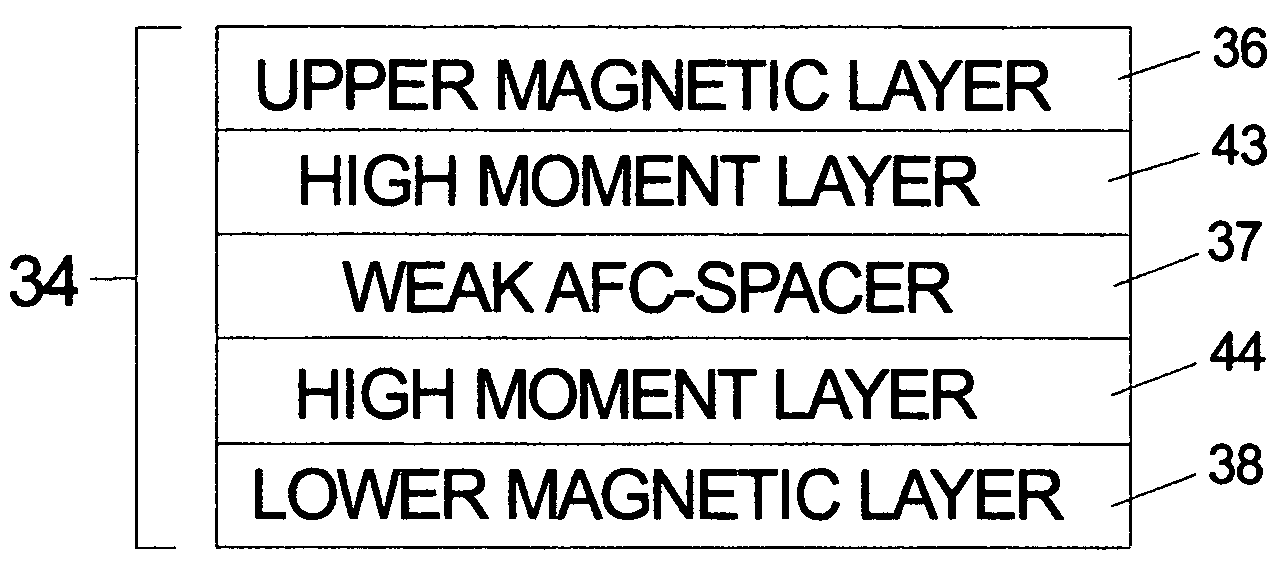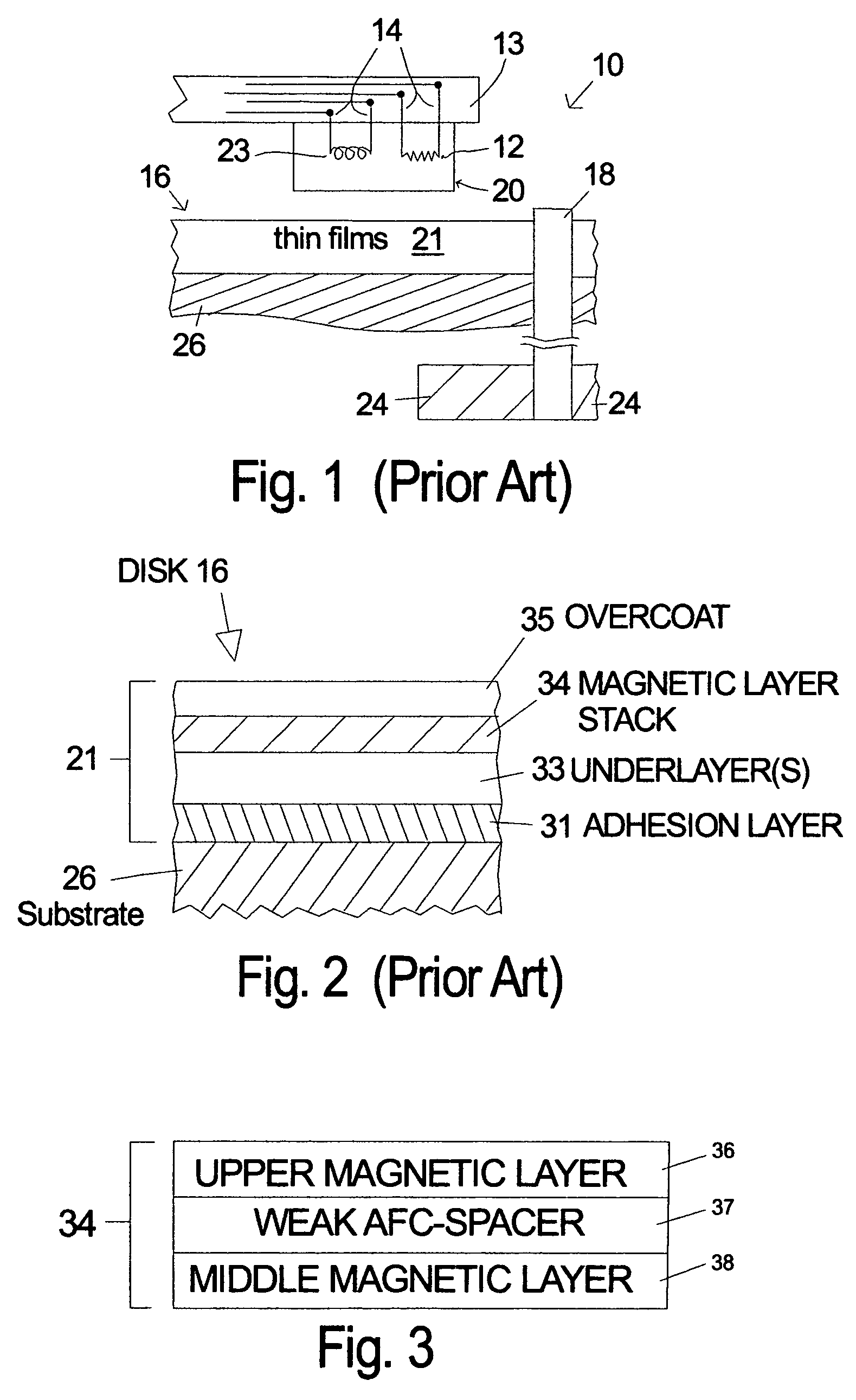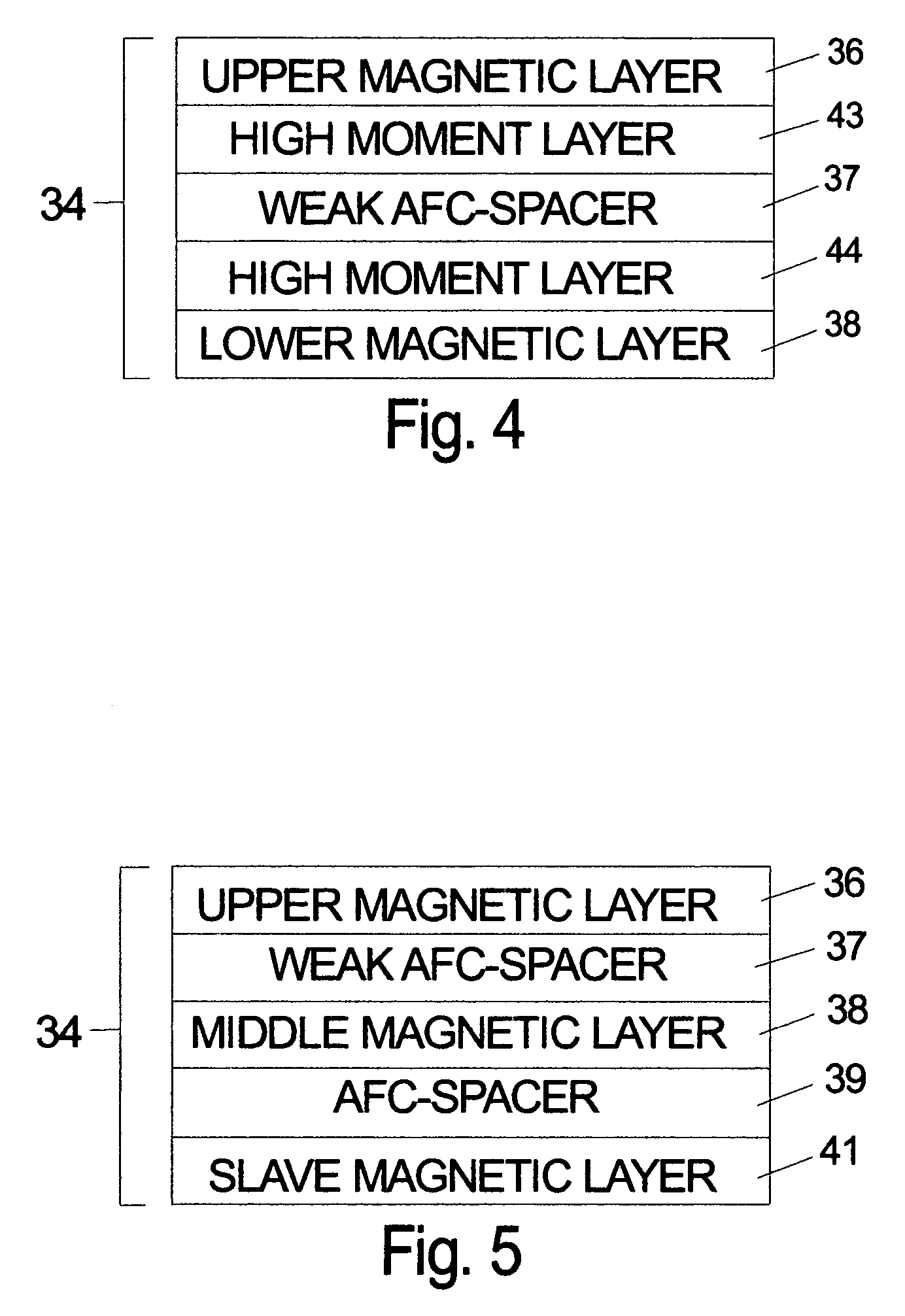Laminated magnetic thin films with weak antiferromagnetic coupling for perpendicular magnetic recording
a technology of perpendicular magnetic recording and thin film, applied in the field of magnetic thin film media, can solve the problem of losing all of this benefi
- Summary
- Abstract
- Description
- Claims
- Application Information
AI Technical Summary
Benefits of technology
Problems solved by technology
Method used
Image
Examples
Embodiment Construction
[0017]Perpendicular recording is thought to have thermal stability advantages when compared to longitudinal recording because of higher write fields and thicker media. The preferred anisotropy orientation of magnetic films for perpendicular recording is perpendicular to the plane of the thin film. Laminated magnetic films for longitudinal recording have the dipolar fields predominantly oriented in the plane of the films where the interlayer dipole fields tend to favor an antiparallel configuration. However, in perpendicular recording media the dipolar fields from one of the laminated layers acts on the other layer and tend to ferromagnetically align or correlate the magnetization. Thus, even if a spacer layer is chosen such that there is no exchange (e.g. RKKY) between the two layers, the dipolar fields will tend to correlate the magnetic domains including the noise and limit the potential 3-dB gain otherwise available in longitudinal laminated media.
[0018]In the invention a laminat...
PUM
| Property | Measurement | Unit |
|---|---|---|
| thickness | aaaaa | aaaaa |
| thickness | aaaaa | aaaaa |
| magnetic domains | aaaaa | aaaaa |
Abstract
Description
Claims
Application Information
 Login to View More
Login to View More - R&D
- Intellectual Property
- Life Sciences
- Materials
- Tech Scout
- Unparalleled Data Quality
- Higher Quality Content
- 60% Fewer Hallucinations
Browse by: Latest US Patents, China's latest patents, Technical Efficacy Thesaurus, Application Domain, Technology Topic, Popular Technical Reports.
© 2025 PatSnap. All rights reserved.Legal|Privacy policy|Modern Slavery Act Transparency Statement|Sitemap|About US| Contact US: help@patsnap.com



